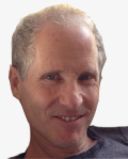
Relationships
Deepening Our Wild Relationship with Nature -- The Old Way
We need wildness without and within.
Posted September 24, 2009
I'll be talking a lot about wildness in this Blog. I'll want to talk about what wildness is. I'll want to suggest that we need it deeply and intimately in our lives. It's part of our essential nature. It gives life meaning.
What is wildness? That's a little like asking, what exactly do we mean when we use the word "nature"? Or what exactly do we mean by "love." Some terms can be hard to define.
As one way to get traction on the idea of wildness, we can draw on indigenous people's interactions with nature, and especially people that were hunter-gatherers. For those lives were our lives in our evolutionary past. And those lives are with us still - in our genetic make-up - in the architecture of our bodies and minds.
One such hunter-gatherer group is the Bushmen of the Kalahari desert. During part of the 1950's, Elizabeth Marshall Thomas and her family lived with these hunter-gatherers in the Kalahari desert. Thomas wrote of her experiences in her 2006 book, The Old Way. It's an extraordinary book. She's an extraordinary person. And I'd like to highlight a few of her accounts.
The Kalahari initially looked wild to Elizabeth Marshall Thomas and her family, if by wild we mean unknown. And I think that can be a deeply important aspect of wildness - something unknown. To go into the wild is to go into the unknown. But wildness isn't always that. The land that the Bushmen lived in was known to them. It was an area covering about six thousand square miles. And course, these people were psychologically comfortable in their landscape. It was their home.
But still the Ju/wasi - that was the Bushmen group that Thomas was living with - encountered wildness of other forms. The most obvious form was with predators, especially leopards, hyenas, and lions. Lions especially! Lions could catch and take down what they wanted. Thomas writes: "No other creatures of the savannah sleep as deeply or as soundly as lions, but after all, lions are the main reason for not sleeping soundly" (p. 148). Lions are also curious of their surroundings. Sometimes at night they walked into Ju/wa camps and poked around. Thomas writes of the following encounter:
"I remember one night in particular...I soon heard a man's strong voice in a stern, commanding tone telling someone to leave immediately. The Ju/wasi never took that tone with one another. I came out of the tent to see what was happening, and behind some of the shelters I saw four very large lions, each three times the size of a person...The speaker was ≠Toma. Without taking his eyes off the lions, he repeated his command while reaching one hand back to grasp a flaming branch that someone behind him was handing to him. He slowly raised it shoulder-high and shook it. Sparks showered down around him. ‘Old lions,' he was saying firmly and clearly, ‘you can't be here. If you come nearer we will hurt you. So go now! Go!'...The lions watched ≠Toma for a moment longer, then gracefully they turned and vanished into the night." (pp. 150-151)
Wildness exists in this form of wild animals that can hurt us and even kill us. Wildness exists in terms of our fear of nature.
Wildness can also refer to states that are vast, free, and self-organizing. That's a description of nature unencumbered and unmediated by our artifacts and our technologies. In this sense of the term, the Ju/wasi encountered wildness on a daily basis. Wildness did not just exist facing off a lion with a burning branch. It was encountered in chasing down a bull eland in 120 degree heat; it was encountered experiencing the migration of birds, the changing of the seasons, heat and cold. Wildness was the freedom to move, and the strength to do so, and the land to do it in.
Much of that wildness is still accessible to us today. But we're losing it quickly - not just over centuries, but over handfuls of years. Our interactions with the wild are becoming increasingly domesticated, and even perverted. I'll say more about these ideas in future posts.
I'll also discuss in future posts how wildness without maps onto wildness within - of our need for a wildness in our passions and creativity, and in our primal and loving relations with others.

